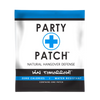The dreaded hangover! There is nothing worse than waking up to a pounding headache or feeling like you are on a merry-go-round after a night of drinks with friends. Whether you had only 2 glasses of wine or you drank your weight in jello shots, no one is immune to the morning-after spins. Hangovers aren’t biased. Have you ever wondered why?
Well, alcohol is indeed a toxin. And, your body just wants it out. Many factors play into the severity of a hangover, including gender, weight, and even the health of your immune system. Let’s take a look at how alcohol metabolism works and discuss the ways you can reduce the negative side effects.
Alcohol is a diuretic. It acts on the kidneys causing you to pee more than you take in. It also reduces the production of vasopressin, a hormone that tells your kidneys to reabsorb water rather than send it to your bladder. This leaves the bladder to fill with fluid, and you break the seal.
Because you are flushing out so much fluid while you are drinking alcohol, you are also losing water-soluble vitamins like B-complex vitamins. This means they are not stored in our bodies and dissolve readily in water. They are flushed out through urine, which is why we need to take B vitamins every day. Vitamin B deficiency is a side-effect of drinking alcohol and may increase the severity of your hangover.
Alcohol is metabolized mainly in the liver. Did you know, the liver is the workhorse organ and responsible for over 500 functions in the body? It’s also the size of a football weighing in at over 3 pounds!! Maybe that’s why beer is associated with touchdowns? Nah, probably not.
According to the National Institute of Health, alcohol is broken down in the liver by an enzyme called alcohol dehydrogenase (ADH), which transforms ethanol into a toxic compound called acetaldehyde (CH3CHO), a known carcinogen. However, acetaldehyde is generally short-lived; it is quickly broken down to a less toxic compound called acetate (CH3COO-) by another enzyme called aldehyde dehydrogenase (ALDH). Acetate then is broken down to carbon dioxide and water, mainly in tissues other than the liver.
Whoa, science.
Basically, it means the liver wants it out. And, it uses nutrients and vitamins to support this stress. When the liver can’t eliminate toxins with accessible nutrients, it calls on your bloodstream to deliver extra help. This means after a night of drinking, your body can be vastly depleted of the essential goods your body needs to fire on all cylinders. Combined with the kidney’s flushing, this extra work on the liver can cause a variety of hangover symptoms, like nausea, numbness, headache, and exhaustion.
So, how do you offset all this extra work on your body, potentially minimizing or preventing a hangover? Besides staying hydrated, replacing lost vitamins during drinking seems like the logical answer. Party Patch is packed full of 3 B-complex vitamins, plus Taurine. Delivered through a topical patch while drinking, this slow and timed release ensures your body is receiving the lost vitamins during drinking.
Hangovers suck, there’s no doubt about it. But that doesn’t mean you have to stop having a drink or two to avoid them. By understanding the way alcohol works in your body and using a prevention aid like Party Patch, you can reduce the negative side effects of alcohol and say goodbye to hangovers.
Win Tomorrow.
This blog is for information purposes only. By providing the information contained herein we are not diagnosing, treating, curing, mitigating, or preventing any type of disease or medical condition, or giving medical advice. These are not scientific or medical statements; it is advisable to seek the advice of a licensed healthcare professional.




